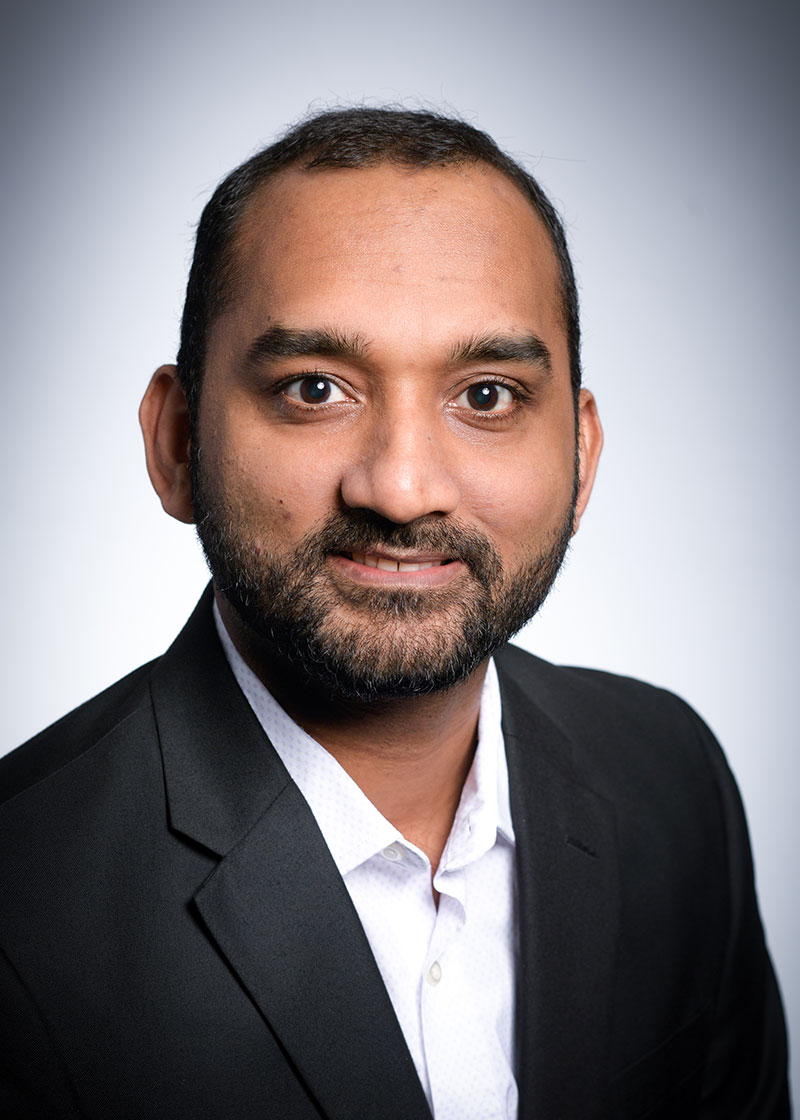February 2022
Ruzmyn Vilcassim, PhD ruzmyn@uab.eduAssistant Professor, Environmental Health SciencesWhat brought you to UAB and why public health?
I joined UAB from NYU in 2019. As I was nearing the completion of my postdoctoral fellowship, I knew I wanted to go into academia. While browsing through places that offered research in environmental health, I came across UAB and the rest is history!
Environmental health has always been an interest of mine. Environmental exposures/factors are omnipresent and ultimately impact public health. I greatly enjoy relating environmental health information to epidemiology, toxicology, health behavior, and other public health fields.
What is your educational background?
I completed my Bachelor's in Zoology and Environmental Sciences from the University of Colombo in Sri Lanka. After working in various environmental non-profits for four-five years, I decided to go back to research. This led me to New York University where I completed my master's in Occupational and Environmental Hygiene and PhD in Environmental Health.
What is the broad focus of your research?
The broad focus of my research is on the health effects associated with exposure to air pollutants. Essentially, how particulate matter can impact your health when you breathe in large concentrations of the pollutants. Currently, I am particularly interested in e-cigarette use and its impacts on health — mainly how lung health is affected.
The most exciting project you are working on right now is...?
I am designing a grant to look at e-cigarette use and maternal health. I am interested to know two things:
- Will quitting e-cigarettes impact a long-term user's lung health?
- Identifying unique exposure and health biomarkers among users that are indicative of future adverse health impacts.
Coolest conference you have been to?
In 2017, I had the opportunity to travel to Barcelona for the Conference of the International Society of Travel Medicine to present my PhD study on the health impacts of traveling to polluted cities abroad. I ended up winning best poster and my paper was published in their journal (Journal of Travel Medicine). I was happy to present my findings from an environmental health perspective. Based on this work and interest by travel medicine professionals, we were invited to present a symposium at the following CISTM in Washington D.C.
Coolest conference you have been to?
Back in 2001, I went to a seminar led by Judea Pearl. He had just published his book on Causality and he outlined his thinking on causation as well as correlation. This inspired me to look at correlational data with an overlay of structure and try to unify this perspective that that is rooted in causal networks with traditional statistical approaches like factor analysis that are based on measuring the associations. This question is driving a lot of my current research.
Your favorite self-authored manuscript?
My PhD project where I studied healthy non-smoking adult participants who traveled abroad from New York City to selected cities abroad including New Delhi, Beijing, and Shanghai. The goal was to see how short-term travel to highly polluted cities affects respiratory health. I found that even short-term exposure to highly varying levels of air pollution can impact lung function. This was evidenced by participants who experience cold like symptoms while abroad, and once back, the symptoms disappeared. Recruiting students to be in a cohort and gathering data on the before and after of international travel was a novel project at the time. It served as a good learning experience combined with very interesting results! In total, a cohort of participants were studied for about three years with recruitment, follow-up, and analyses. In the future, I'd love to do a long-term study on expatriates who have been living abroad.
Most prized professional accomplishment?
Organizing a major national conference in Sri Lanka while working for the Environmental Foundation Limited in collaboration with the World Wildlife Fund and the American Red Cross. The conference was on the health of farmers and the issues they face such as wounds, snake bites, polluted water, etc. Bringing all the key stakeholders together to discuss the major issues and implement a successful program was a daunting task, but the results were worth it. The experiences and skills I gained are immeasurable, particularly on taking leadership and the responsibilities that come with it.
If you had the funding to answer any one research question, what would it be?
Easy — "What would make a grant successful at NIH" or "Give you 100% chance of having a successful grant!"
Jokes aside, if I had unlimited funding, I would like to recreate the study abroad project in collaboration with universities in China, South America, India, and Europe. This would allow a bigger sample size to follow people traveling to/from these countries. Although my initial project had shown that respiratory health effects can briefly appear while abroad and disappear afterwards, I am interested in the long-term effects and how vulnerable groups are impacted.
